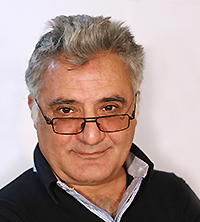
Mr Jaloyan, the distrust towards the Armenian Church is intensifying, but the processes taking place in Armenia have cast the issue of the church. What do you think the role of the church and the religious organizations in the modern world and in the life of society and the state in general is?
First of all, I must say that in many countries the distrust towards churches grows. The media are flooded with news about many scandals, moral behavior of the clergy, financial mischief and frauds. The scandals are not the cause, but the consequence. This means that the role of churches and religious organizations in the society is being reinterpreted. The current social or cultural role of the churches creates dissatisfaction, the societies become more meticulous, and these scandals are the focus of public attention.
A new situation has emerged due to neoliberalism, globalization, materialism, and other reasons that can be called “new injustices.” It’s not just about economic or social inequality, but about the structure of contemporary societies when most of the population is deprived of equal opportunity. Under these circumstances, the church elite prefers to supplement the “ruling class” opposed to the victims of “new injustice.” What is the “new ruling class”? They are illegally enriched parasites, conventionally called oligarchs: Government officials and presidents who are embezzlers, media tycoons, mass culture stars, and so on. In short, thieves, bandits and swindlers. Pope Francis, for example, speaks about this, however, very cautiously and in an extremely moderate manner. The others are either silent or flirt with the “ruling class”.
The Armenian Apostolic Church in Armenia has protected the “ruling class”, the thieves, the bandits, and the deceiters, which has put this institution in a difficult situation under new circumstances. It seems, like it has become one of the local branches of the Republican Party. The church flees from public issues trying to stay in the shade. It further aggravates negative attitudes.
After the Revolution, “New Armenia, New Catholicos ” movement began against the Catholicos. There is an impression that the participants of the movement wanted to spread the revolutionary tide on the church to make some changes. Why do you think the movement did not succeed?
First of all, the followers of the Armenian Apostolic Church and many clergymen do not share the policy of the church elite, the policies I’ve mentioned above. The participants of the “New Armenia, New Catholicos” movement first tried to testify this. In that sense, this movement has shown that inside the church and among believers there are rebellious people. It has had success in terms of public awareness.
The slogan “New Armenia, New Catholicos”, in my opinion, is more rhetorical than pragmatic. Imagine “New Armenia, New RPA” movement unfolds, it will also be rhetorical. Or imagine if Martin Luther demanded that the Pope resign and the latter would agree, what would the world be like today in that case?
The “New Armenia, New Catholicos “movement considers the main obstacle to the church’s recovery the personality of the Catholicos and demands his removal. Will a person’s change affect the situation?
The problem in the Armenian Apostolic Church is, of course, not the change of one or more persons. The church system is flawed, which makes the priest an extortionist, authoritarian and leads to arbitrary rule. There is no publicly influential intellectual elite in the Church: Theologians, philologists, historians, artists, philosophers, writers… it reflects the intellectual condition of the church. But, of course, the main reason is the corruption of the clergy.